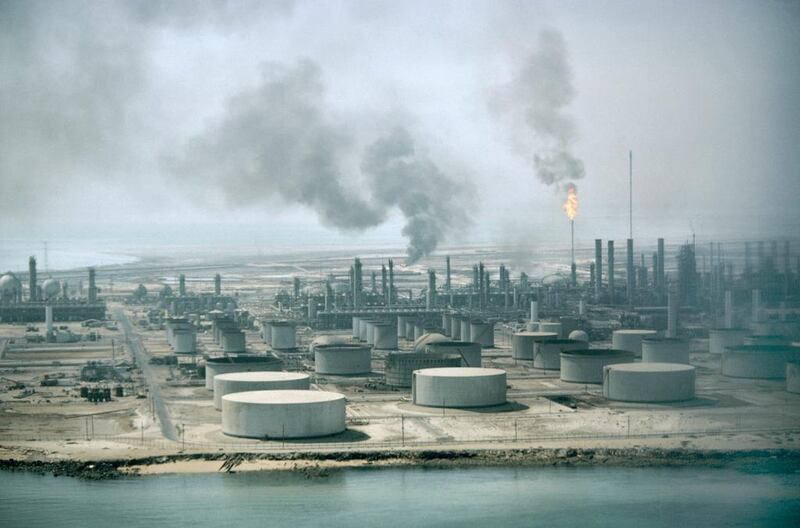Around $84.2 billion revenue was generated by regional petrochemical producers in 2017, marking a 17 per cent year-on-year increase, according to the Gulf Petrochemicals and Chemicals Association. We break down industry jargon on what chemicals are and why they are important to the region's economies.
What are petrochemicals?
Petrochemicals are the products of crude that are processed in a refinery and which are used as feedstock for polymers that in turn find varied uses in the plastics industry. They also form the basic building blocks for many everyday goods from sneakers to tyres.
Which are the most key petrochemical products?
Polyethylene and polypropylene are the key petrochemical products that make up the polymers industry, which sees increasing demand from consumer markets in Asia, notably India and China. The two products are the main building blocks for plastics products.
Another key chemical compound is butadiene, which is widely used in the manufacture of synthetic rubber that finds uses in the automotive sector.
How are they made?
Petrochemical compounds are manufactured from a process known as cracking, by which light crude products are broken into smaller molecules and recombined as polymers.
What feedstock is required for cracking?
Naphtha is one of the key refined products that is used as feedstock or raw material in a petrochemical plant. Liquefied petroleum gas, which commonly is used as a cooking fuel, is also a key petrochemical feedstock, used in the cracking process for the manufacture of polymers.
How do they contribute to the GCC economy?
Petrochemical products generate more money out of every barrel of crude for a petro-state. They generally fetch higher margins compared with a barrel of crude and enable GCC economies to diversify and create a solid manufacturing base. The volatility in the price of oil has also prompted greater development in the downstream value chain, particularly in chemicals.
Why are GCC countries ramping up petchem production?
Saudi Arabia and the UAE have pushed for greater investment in the downstream sector, which includes refineries and petrochemicals. State-owned Abu Dhabi National Oil Company for instance, announced its downstream strategy earlier this year, which is expected to see investments of $45 billion with partners in developing this industry over the next five years. By 2025, Adnoc is aiming to build the world’s largest integrated refinery and will see the doubling of its refining and tripling of its petrochemical capacities.
Saudi Aramco, which has embarked on massive integrated projects such as the $20bn oil-to-chemicals facility on the Red Sea coast, is looking to convert two to three million barrels per day of oil to chemicals over the next 10 years.
Aramco, the world's biggest oil producing company, is also in talks to acquire 70 per cent of Saudi Basic Industries Corporation, the region's biggest petchem producer, and is looking to spend $100bn scouting for more acquisitions in the sector.
________________
Read more:
GCC chemicals producers' revenue rose 17 per cent to hit $84.2bn in 2017
Saudi Aramco to attract $150bn in investment for gas programme
________________







